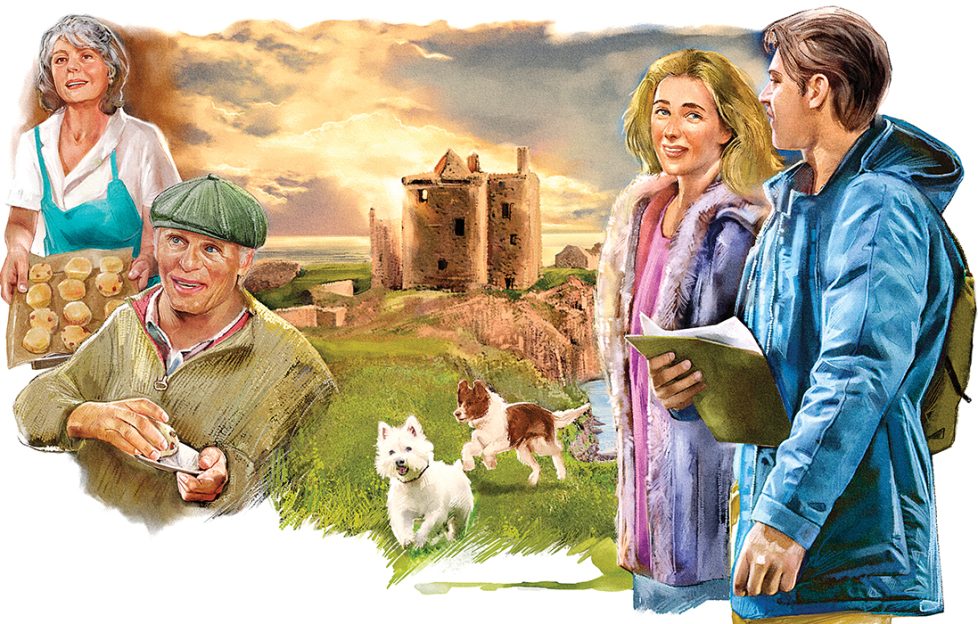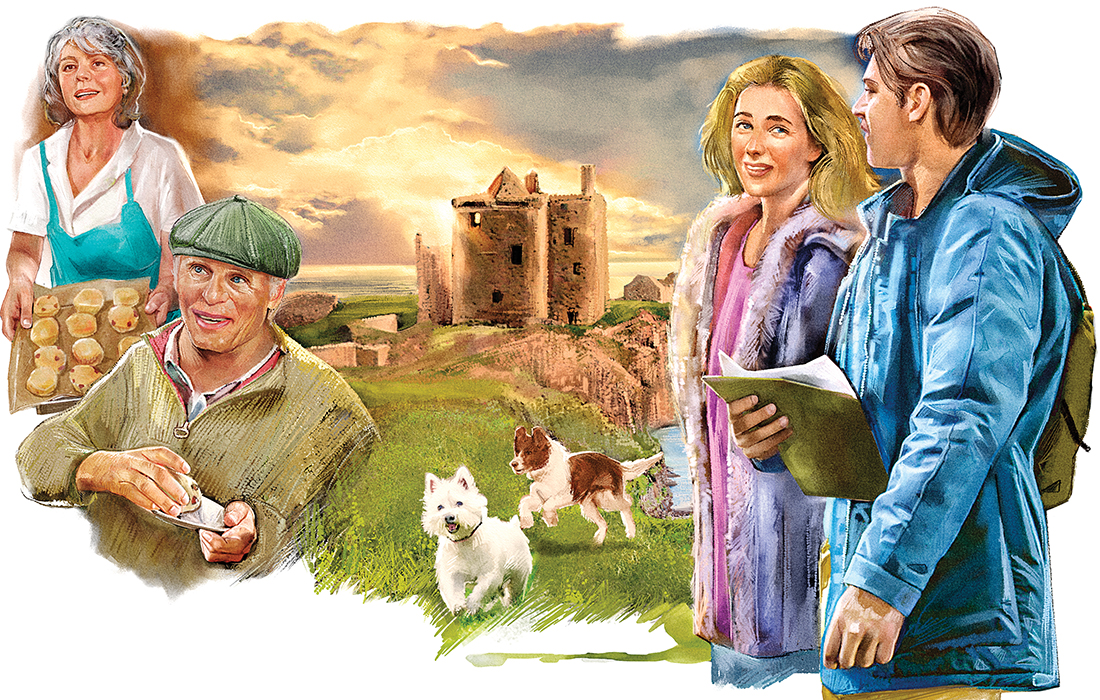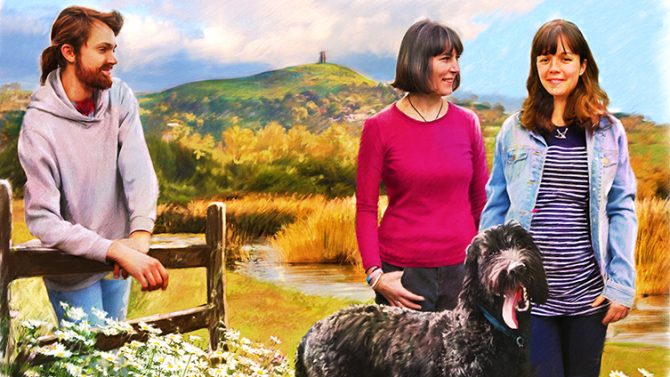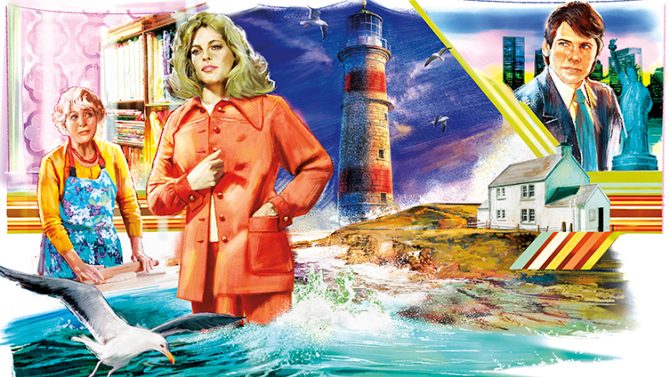There’s Always Tomorrow – Episode 16

There's Always Tomorrow by Mark Neilson
« Previous Post- 1. There’s Always Tomorrow – Episode 01
- 1. There’s Always Tomorrow – Episode 16
“Those scones were delicious,” Helen gushed, licking her fingers. “Where did you get the recipe?”
“From another sergeant,” Larry replied.
She stared at him.
“You’re joking,” she accused him, then shook her head. “Where next?”
Gathering the remnants of their picnic, he put them into his backpack.
“Back to the main road, then towards Inverbervie,” he said.
“You can park in Kinneff village. I want us to walk down to the Old Kirk there and let you drink in the peace and isolation.”
The van had developed a warm and comfortable fug of wet dogs, but they had shared Helen’s life for so long, she scarcely noticed.
Larry wound down his side window a little.
“Is the van too hot or too smelly?” Helen asked.
“I plead the Fifth,” he replied with a grin. “Turn in here and park. Then we can get the dogs wet again while we walk to the church.”
There was a clipping-on of multiple leashes and a pack of straining dogs to hold until they crossed the main road and took the country lane towards the sea and a lighthouse that peered over the fields.
“The story,” Helen demanded impatiently, unclipping the dogs’ leashes.
They walked at an easy pace, which seemed in keeping with the quiet of the fields around them and the grey of the distant sea.
Helen realised again how much she was enjoying exploring her new locality with this quiet man.
This is friendship, she thought. Larry was a stranger who had been kind to her and become a friend.
They faced the same problems of escaping the past.
She didn’t want to think about the future: it was enough that she learned to cope with the present, to enjoy and lose herself in Larry’s stories, rather than to fear each new day.
That common ground had become the basis for a new friendship.
And a friendship it would remain. She didn’t want romance.
“Come on, Larry,” she urged. “The rest of the story?”
He laughed.
“OK. The Dunottar garrison fought on, holding out for three more months, which let the trail grow cold.
“When they finally accepted the offered terms of surrender and marched out with their banners flying, the English officers couldn’t believe only thirty-five men had held out for so long against them.
“They were treated with honour for their courage.”
“And the Crown Jewels?” she prompted.
“Do you see where our road bends round the farm and its trees?
“That’s where the old church was, in a hollow of the fields above the sea,” he explained.
“The minister must have been appalled at what his wife had done, but he did everything in his power to help.
“At midnight, he levered up flagstones in front of his pulpit and buried the Crown and Sceptre there,” Larry went on.
“Then he pulled up flagstones between the front rows of his congregation’s seats, buried the Sword of State and relaid the stones.
“He swept up the dust from the floor of his tiny church and scattered it over the disturbed stones, while his wife stood guard at the church door,” he finished.
“That’s amazing!” Helen exclaimed. “Were the treasures ever found?”
“No.” Larry shook his head. “Cromwell’s army scoured the castle and the length and breadth of the countryside, but they had to admit defeat and go home without them.
“The Crown Jewels remained under the flagstones until Cromwell’s reign ended.
“Then they were returned to Charles II, put into a box and hidden in Edinburgh Castle until Sir Walter Scott asked the King’s permission to search for them.
“When they were found they were in a sorry state from centuries of neglect, but were refurbished and lie in Edinburgh today.”
For a few minutes, they walked in silence, broken only by the sound of crows and distant seabirds calling.














